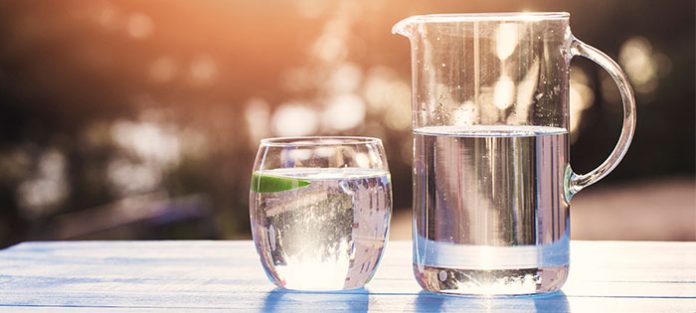
—Amy J., SUNY Empire State College, New York
Drinking too much water carries the risk of hyponatremia. This condition occurs when the amount of sodium in your blood is much lower than normal, causing the cells in your body to swell. Hyponatremia can be fatal if the cellular swelling occurs in your brain.
A student’s story
Years ago I saw a student who complained of lightheadedness, dizziness, fatigue, and headaches. She told me that she was sleeping well, eating a balanced diet, exercising, and drinking plenty of water. When I asked how much water, she said she carried a liter water bottle and was filling it at least five times a day.
I suggested that maybe she should try backing down to 1–2 liters a day. When she did, her symptoms improved greatly. This suggests that she could have been hyponatremic.
How much water should I drink every day?
The right amount of water is the amount that your thirst dictates. My suggestion: Drink when thirsty. You’ll need to drink more if you’re exercising, have a fever, if it’s hot out, etc.
If you go hours between urinating or your urine is very dark and strong, you probably aren’t drinking enough. The average person going through their day at school probably needs to drink a liter or two a day.
Inadequate hydration can contribute to, or aggravate, some illnesses and conditions. For example, the Mayo Clinic recommends drinking plenty of water to help ease urinary tract infections and (of course) heatstroke. And certainly water is better for us than soda.
What about the “EIGHT glasses a day” rule?
If you’re looking to kill a few hours, try searching online for “eight glasses of water a day.” This is a health advice meme that has been widely circulated for a number of years and yet has essentially no good evidence to support it.
The “rule” reflects the marketing goals of the bottled water industry, not scientific findings. Eight glasses a day “is not only nonsense, but is thoroughly debunked nonsense,” according to an editorial in the prestigious journal BMJ (2011).
The water advice topic is actually a great leaping-off point for a discussion about health advice in general. Is it just me or is the world full of people wanting to tell us what to do? OK, I’m guilty as charged, but we do mean well. The question is: How are you supposed to navigate all this guidance? To start, I’d recommend responding by saying: “That’s interesting. I’d like to see the evidence for that.”
So, can drinking too much water be dangerous? Yes, and so can following well-meaning health advice passed from person to person without investigating the evidence basis. Life is complicated. Isn’t it wonderful?



























